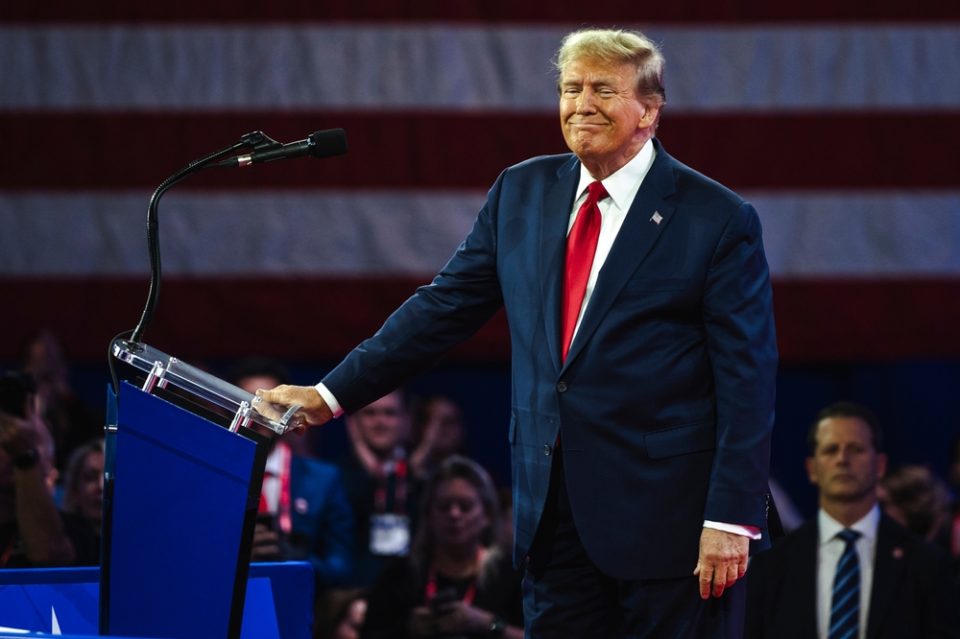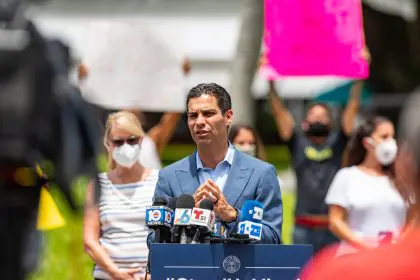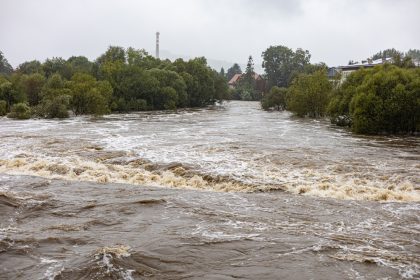Former president’s statements reveal potential misunderstandings of case complexities

The evolution of a controversial policy
Donald Trump’s recent remarks regarding his potential plans to pardon individuals involved in the January 6 Capitol riot have ignited intense legal and political discussions. In a statement that has drawn sharp reactions from across the spectrum, Trump suggested that he would review cases within the “first nine minutes” of assuming office, signaling a rapid executive action on the matter. These comments have sparked widespread debate about the feasibility and potential consequences of such an initiative, highlighting the broader issues surrounding executive power, the pursuit of justice, and political maneuvering.
Legal landscape and current status
The scope of the legal challenges stemming from the January 6 insurrection is immense. Over 1,500 individuals have been charged in connection with the events of that day, creating an unprecedented wave of legal cases that has stretched federal courts and prison systems.
More than 1,100 convictions secured
As of now, more than 1,100 of the individuals involved have been convicted, with a significant number of them facing jail time. Many of these convictions stem from a variety of charges, including assaulting law enforcement officers, destruction of property, and participating in a violent riot. The cases span across the country, with defendants being tried in courts from Washington D.C. to California.
Approximately 600 prison sentences issued
The legal repercussions have been severe for many, with approximately 600 individuals receiving prison sentences, some of which are lengthy. The sentences range from relatively short terms to several years in prison, particularly for those involved in the most violent aspects of the attack. The ongoing nature of the prosecutions has drawn attention to the broader legal implications and the evolving challenge of seeking justice for such an unprecedented event.
Cases dispersed across federal facilities nationwide
The sheer number of defendants has created logistical challenges for the federal system, with individuals being held in various facilities across the country. Managing such a large and geographically dispersed group of prisoners adds a layer of complexity to the situation, especially as the Justice Department continues to push forward with its efforts to prosecute those involved.
Examining the implementation challenges
Trump’s proposed pardon strategy has faced significant scrutiny, particularly when it comes to its practical execution. The number of individuals involved in the January 6 events, paired with the complexity of their individual cases, raises profound questions about how such a sweeping policy could be fairly and effectively implemented.
The sheer volume of cases poses a major hurdle. With over 1,500 individuals involved in the insurrection, the logistics of reviewing each case and determining whether a pardon is warranted is a daunting task. It requires a level of detail that could be difficult to achieve in the tight timeframes that Trump has suggested. Furthermore, the varying degrees of criminal conduct among those charged complicates the issue. Some participants were relatively passive, while others engaged in violent confrontations with law enforcement. A blanket pardon strategy may fail to account for these differences, leading to questions about fairness and equity.
Moreover, ethical challenges also arise when considering pardons. If Trump were to move forward with such an initiative, it could undermine the work of the justice system and potentially signal a lack of accountability for those who took part in an act that shook the foundation of American democracy. The impact of such a decision would reverberate well beyond the specific individuals involved, influencing public trust in the rule of law and the integrity of the judicial process.
The role of misinformation
Another major issue surrounding Trump’s pardon plan is the role of misinformation. Throughout his presidency and beyond, Trump has frequently referred to debunked conspiracy theories related to the 2020 election, and his comments on the January 6 defendants are no exception. He has publicly suggested that many of those involved were acting in response to alleged voter fraud, a claim that has been widely disproven.
This disconnect between rhetoric and reality is concerning, especially when considering the potential impact of such statements on the public’s perception of the insurrection. Trump’s comments on pardoning those involved in the riot may not align with the facts of the cases at hand. This gap between perception and reality could lead to confusion about the nature of the offenses and the extent to which they should be forgiven. Moreover, misinformation surrounding the event has fueled division, with some segments of the population viewing the rioters as patriots rather than criminals, making any pardon initiative even more contentious.
Justice department response
The Justice Department has consistently maintained its commitment to prosecuting those involved in the January 6 attack, despite the possibility of future pardons. This dedication to the legal process is indicative of the ongoing tension between the executive branch’s authority to grant pardons and the independence of the judiciary.
Federal prosecutors have pushed forward with trials and sentencing, underscoring the importance of upholding the law. Their actions reflect the belief that individuals who participate in insurrection should face consequences, irrespective of political affiliations or public opinion. The department’s role in maintaining the integrity of the justice system highlights the broader struggle between executive power and the need for an independent judiciary that is free from political influence.
However, the looming possibility of pardons presents a significant challenge for the department. If Trump were to follow through with his plan to pardon January 6 participants, it could fundamentally alter the course of justice for many individuals who have already been convicted or are in the process of facing trial. This uncertainty has left many wondering about the long-term effects such an action could have on the legal landscape, particularly when it comes to upholding the rule of law and ensuring that accountability remains a cornerstone of the American justice system.
The path forward
As the situation continues to evolve, the future of Trump’s pardon plan remains uncertain. While the legal and political implications are profound, it is clear that any move to pardon those involved in the January 6 insurrection will spark a renewed debate about justice, accountability, and the proper use of executive power. The growing tension between the executive and judicial branches will likely shape the future of the nation’s legal framework, with lasting implications for the relationship between the president, the courts, and the American people.
In the end, the question of whether or not Trump’s January 6 pardon plan will come to fruition is a complex one that touches on deep-seated issues within the American legal and political systems. What is certain, however, is that the controversy surrounding this issue is far from over, and it will continue to shape the national conversation in the months and years ahead.















